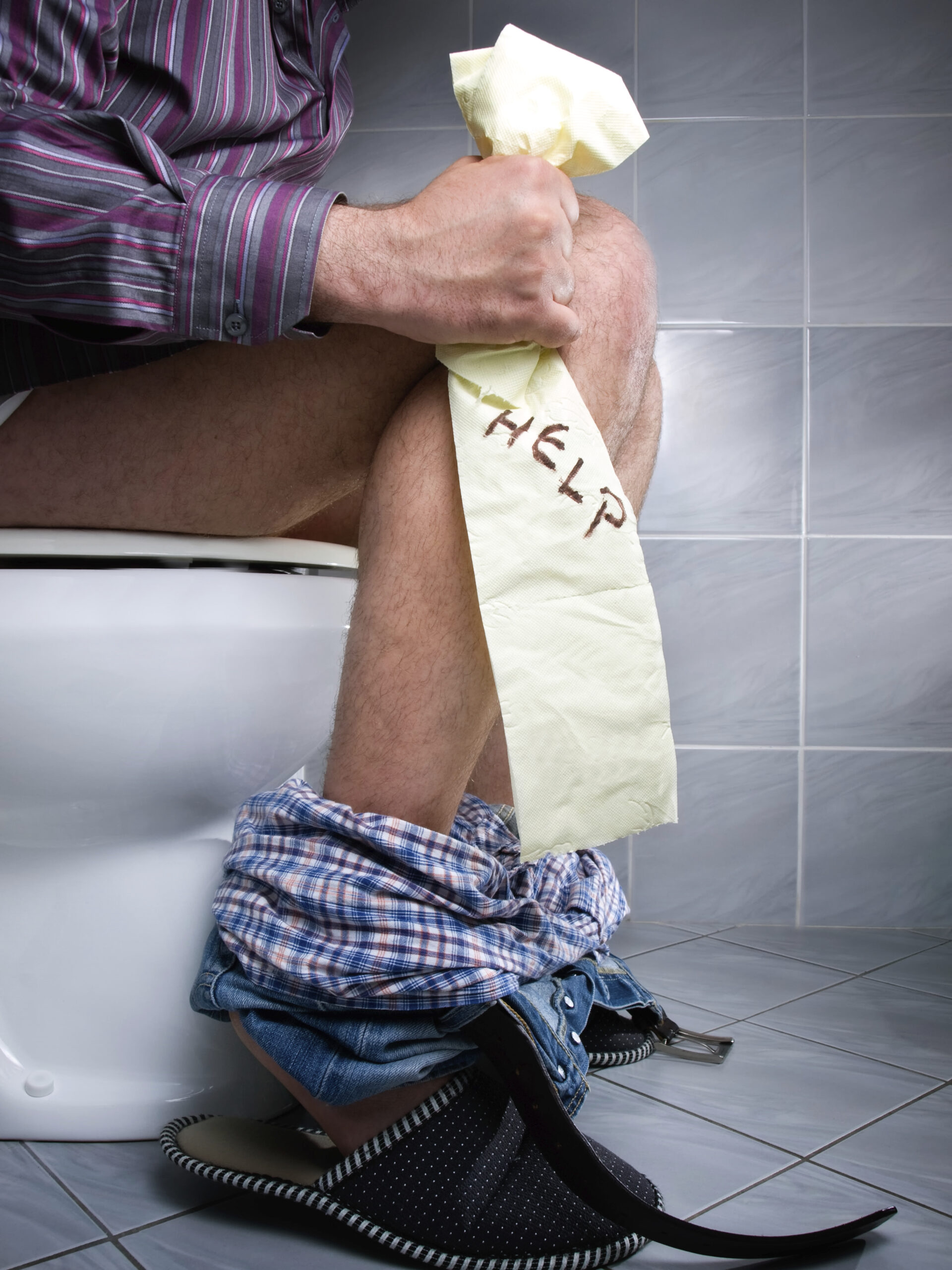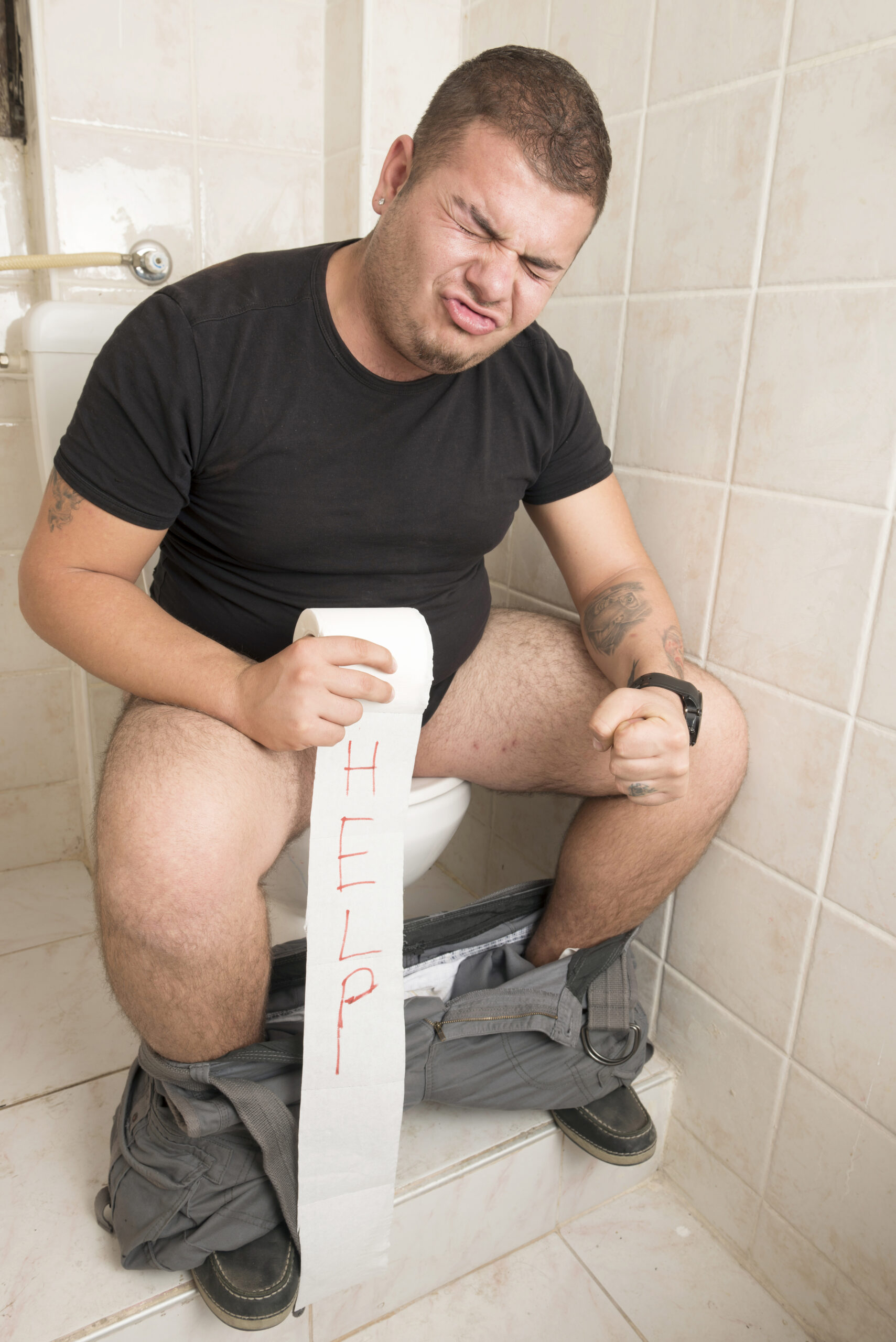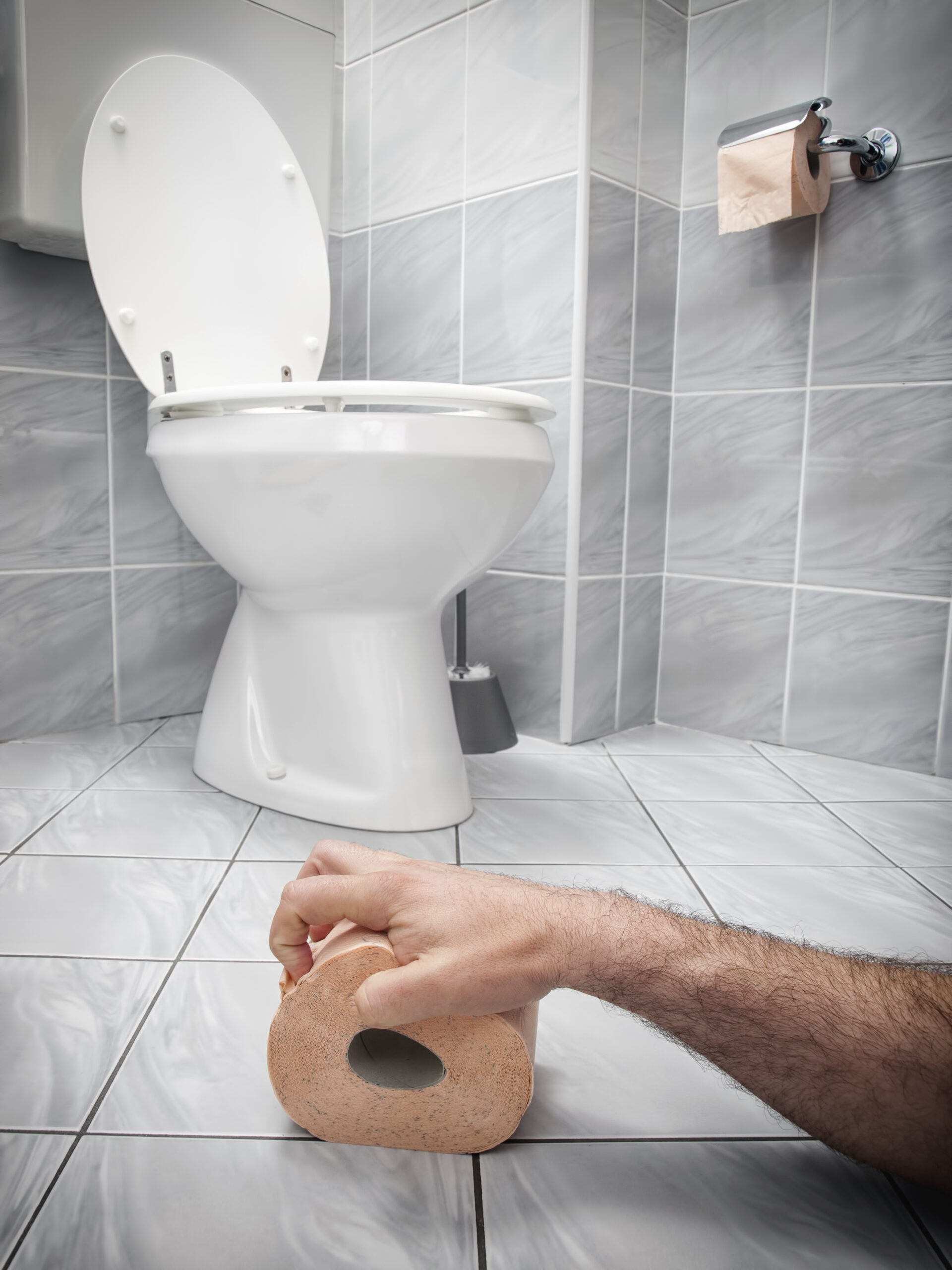Rectal Bleeding
Causes of Rectal Bleeding
Rectal Bleeding may be caused by hemorrhoids or something more serious. Find out what is causing your bleeding and get the right help.
The most common cause of rectal bleeding is from internal hemorrhoids. The blood is typically bright red and associated with bowel movements. It may be noticed on the tissue paper, on the surface of the stool, or drip into the bowel. The bleeding is typically mild and intermittent but occasionally is massive and causes anemia. Internal hemorrhoids are present in everyone. If they become dilated the blood vessels become friable and bleed. There may be associated rectal pain, swelling, itching, incomplete evacuation of stool, or leakage of stool.
Black Tarry stools are usually due to digested blood from the stomach or esophagus. There may be an ulcer, inflammation-gastritis, or varices-dilated blood vessels from cirrhosis of the liver. Black licorice, lead, iron, or Pepto Bismol can also cause black stools.
Red or maroon-colored stools, which may be foul smelling, is referred to as hematochezia or lower GI bleeding. Causes include diverticulosis, angiodysplasia, inflammatory bowel disease, polyps, cancer, colitis, radiation damage, or due to a connection between the colon and the aorta following aortic surgery and graft placement. This bleeding may be life threatening and requires immediate hospitalization.
Not all rectal complaints are due to hemorrhoids. Fissures, thrombosed external hemorrhoids, Colon or Rectal Cancer, Proctitis, STDs, Pruritus Ani from fungal or bacterial infections, Ulcerative Colitis, Diverticulosis, Arterio-venous malformations, Crohn’s disease, hemangiomas, and rectal varices are other causes.
Diagnosis of Rectal Bleeding
Do not assume the rectal bleeding is from hemorrhoids. A physical exam, rectal exam, sigmoidoscopy, and in some cases colonoscopy is mandatory to identify the cause of the bleeding and help rule out other conditions such as colon or rectal cancer. Associated change in bowel habits, weight loss, and abdominal pain mandate additional testing.New onset rectal bleeding in someone over the age of 35 that is not typical of hemorrhoids or does not respond to banding requires further testing with colonoscopy.
Colon cancer incidence is increasing in people under the age of 45. Abdominal pain, diarrhea that persists, rectal bleeding, or iron deficiency anemia needs investigation. Sexually transmitted diseases of the rectum such as HPV, syphilis, gonorrhea, chlamydia , or herpes may also cause rectal bleeding. Selected patients under the age of 40 may also need colonoscopy as colon cancer does occasionally occur in younger individuals. Sexually transmitted diseases of the rectum such as HPV, syphilis, gonorrhea, or herpes may also cause rectal bleeding.
Colonoscopy
Treatment of Rectal Bleeding
If the hemorrhoid bleeding does not stop with adding fiber to your diet and limiting your time on the commode to two minutes, it is time to have the blood vessels shrunk with rubber banding. Preparation H, steroid creams, cold compresses, and hemorrhoid suppositories may provide temporary relief. In addition to hemorrhoid banding custom compound medications containing Nitroglycerin, Diltiazem, or Nifedipine plus analgesics may be prescribed reduce anal pressure and pain.
Please do not delay seeing a physician qualified in the non-operative treatment of hemorrhoids because of your fears or embarrassment. Over half of us will suffer from hemorrhoids at some point in our life. Treatment using the O’Regan ligation system is quick and with minimal discomfort. It is extremely effective and has the lowest complication rate of any effective procedure done for internal hemorrhoids.
At the Hemorrhoid Centers of America, it is our goal to provide you with a non-painful treatment for your hemorrhoids (piles) and/or anal fissures. We understand the fear and embarrassment you may be feeling. Our staff will help you feel comfortable. Our treatment is covered by all major health insurance plans.
If you are a new patient, please read over the new patient FAQs and the new patient paperwork for the location closest to you.
For the most in depth information on hemorrhoids, anal fissures, constipation, itching be sure to click on one of the links.
At HCA we only use disposable ligation systems. Dr. Goldman introduced disposable banding to the Southeastern United States in 2006. Dr. Alan Goldman is the Medical Director of Hemorrhoid Centers of America. At HCA we have helped thousands of patients avoid surgery and get the relief they deserve. We will start you on our special hemorrhoid compounds as needed for immediate relief and help you get rid of your hemorrhoids with our ligation system.

About 1 in 20 Americans have hemorrhoids. You are not alone.










